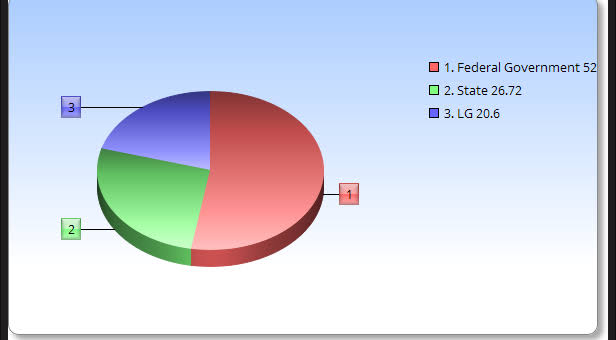Written By : Ifeanyi Okechukwu
The heat is on. It is being felt everywhere. The old, the young; everybody is on the lookout for it. Implementation of the new minimum wage signed by President Mohammadu Buhari early this year is on the front burner.
The battle for the implementation of the new thirty thousand naira is still being waged as the government and the labour have failed to reach an agreement. Government is yet to accede to labour’s demands for the workers from levels 07 to17 and above as workers on grade level 01 to 06 are set to enjoy the new wage. Both parties failed to agree on wage percentage.
Labour insisted on 29 per cent wage increase for those on levels 07 to 14 and 24 percent for top civil servants on levels 15 to 17. However, the government team insisted on 10% for workers on levels 07 to 14 and 5.5% for levels 15 to 17. This indicates that there is no implementation yet of the new minimum wage in any of the thirty-six states in the country.
The scenario is an indication that bickering, strife and acrimony are not yet ruled out, especially in some states. Many of the governors have however indicated interest to pay the wage such as that of Anambra. Governor Willie Obiano, apart from insisting that he would be one of the first to implement the wage law, is currently paying salaries and pensions as and when due, even when many states are owing their workers and pensioners months of salary arrears.
Since Nigeria operates a democratic system of government, many states will, despite paying the new minimum wage, equally continue to provide democracy dividends to the people. This is logical. For instance, in Anambra, the Obiano administration will like to continue to be second to none in the provision of security infrastructure, good road network with accompanying bridges, street lights and payment of salaries and pensions, which culminated in workers tagging him the alert governor.
Akpokuedike will definitely continue his concept that it is nice to take good care of human beings and, at the same time, social amenities, which he often say, “analu olu, ana alu mmadu. The 181 communities in the state will like to see Community Choose Your Project initiative of the state government progress to greater stages. Ndi Anambra will want Akpokuedike to continue to implement measures that boost agriculture in the state. He gave farmers financial incentive, improved seedlings, and fertilizers.
Expectedly, Anambra has achieved food sufficiency within five years of his administration and has moved further on to export surplus. Ndi Anambra will surely want the education sector to continue to blossom and continue to be the envy of other states. Our people will like to enjoy the almost free Medicare of the state government as embedded in the Anambra Health Insurance scheme (ASHIA) policy. No sane society will like to miss all these with the eventual implementation of the new minimum wage.
Therefore, in order to maintain a progressive society with the implementation of the new law, it is suggested that the revenue sharing formula in Nigeria should be reviewed in favour of the states and local governments. Alternatively, oil blocks should be allocated to the thirty-six states in the country rather than to individuals. According to the Department of Petroleum Resources, Nigeria has 159 oil fields and one thousand, four hundred and eighty-one wells. Some of these oil fields should be allocated to state governments to ease expenditure.
The Revenue Mobilization, Allocation and Fiscal Commission should rise to the occasion. The current revenue sharing formula, which gives the Federal Government fifty-two percent; the 36 states, twenty-six percent and the 774 local governments, twenty percent with thirteen percent derivation revenue going to the oil producing states, is no longer in conformity with changing times. This does not reflect the economic realities in the country, while, on the other hand, the formula has remained a key factor in the clamour for true federalism.
If allowed to continue, it will put many states in jeopardy. Many states’ inability to meet vital financial obligations with the current allocation formula is becoming clearer by the day. As at today, many states are in debt of arrears of months of workers’ salary and pensions. Imagine what will happen when the implementation of the new minimum wage commences.
Besides, Sections three hundred and thirteen and three hundred and fifteen of the 1999 Constitution (as amended), call for periodic reviews of the sharing formula. The National Assembly should therefore intensify efforts to review the present structure as it is long overdue. It is more so necessary now that the states and local governments are brainstorming on how to brace up for increase in recurrent expenditure to be associated with the new wage.





Comments are closed for this post.